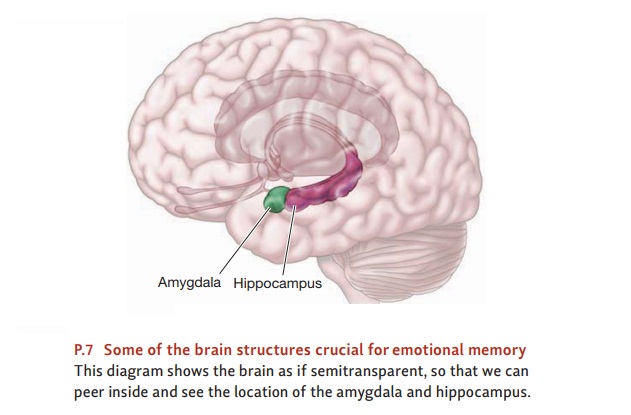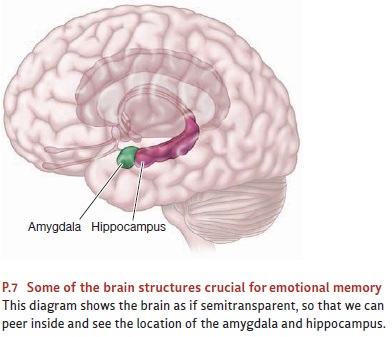Chapter: Psychology: Prologue: What Is Psychology?
The Neural Basis of Emotional Memory

The Neural
Basis of Emotional Memory
High-school graduation.The death
of a beloved pet.A particularly romantic evening. For most people, events like
these—events that were emotional when
they occurred— can be recalled in vivid detail even years later. Why is this?
Why are these emotional events so well remembered?
The answer to these questions has
several elements, one of them involving specific brain mechanisms (Figure P.7):
One structure within the brain—the amygdala—seems
to function more or less as an alarm system, evaluating the content of various
inputs (or ideas or memories), and detecting whether that content is
emotionally significant. If emotional content is detected, then various
processes inside the amygdala activate

other brain sites, including
sites within the hippocampus that are
crucial for establishing long-term memories. Thus, emotional arousal leads—via
the amygdala, modulating the activity of the hippocampus—to more complete and
longer-lasting memories (McGaugh, 2003; Reisberg & Hertel, 2004).
Evidence for these claims comes
from several types of research. In some cases, we can use brain scans to assess
the moment-by-moment activity levels in the amygdala while someone is
witnessing an emotional event. These scans show that the more activated the
amygdala is during the event, the more likely the person is to have strong
memories of the experience later on (Cahill, Babinsky, Markowitsch, &
McGaugh, 1996).
Conversely, we can study the
memories of people who have suffered damage to the amygdala—damage that causes
a disorder known as KlĂĽver-Bucy syndrome. These individuals seem overall to be
less emotional—less likely to show fear, less likely to be aggressive, and so
on—thus confirming the role of the amygdala in shaping our emotional lives.
But, in addition, these individuals do not show the enhancement of memory for
emotional events that we can so easily observe in most other people. Without
the amygdala, the processes that produce this enhancement cannot function;
individuals with KlĂĽver-Bucy syndrome thus show little difference between how
they remember significant emotional episodes and how they remember much more
mun-dane events (Buchanan & Adolphs, 2004).
Related Topics